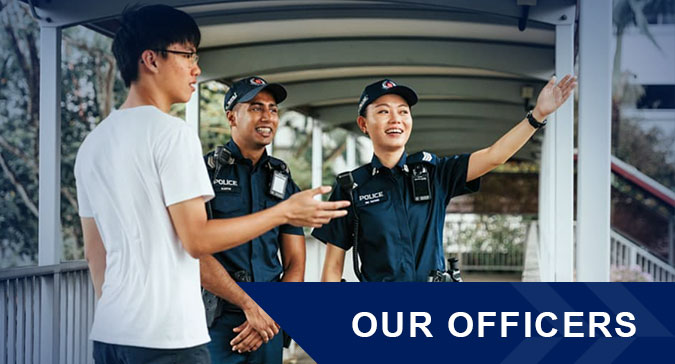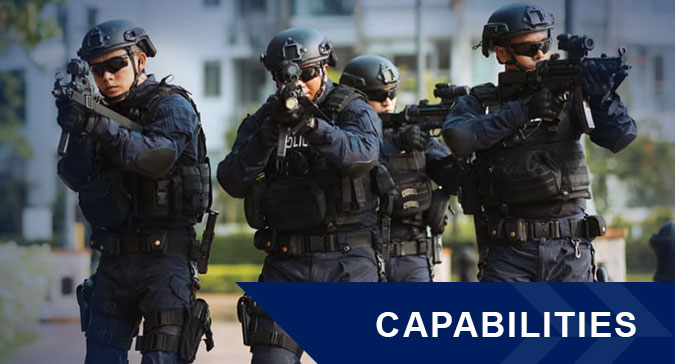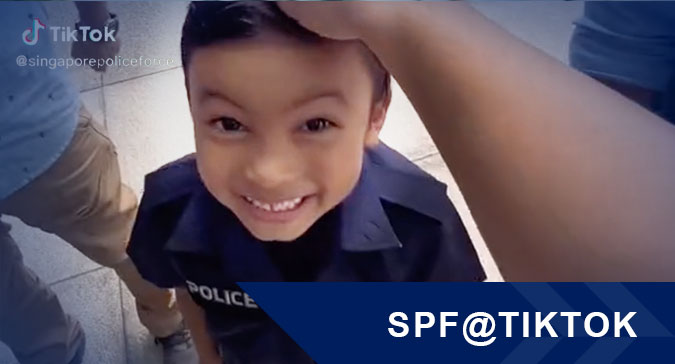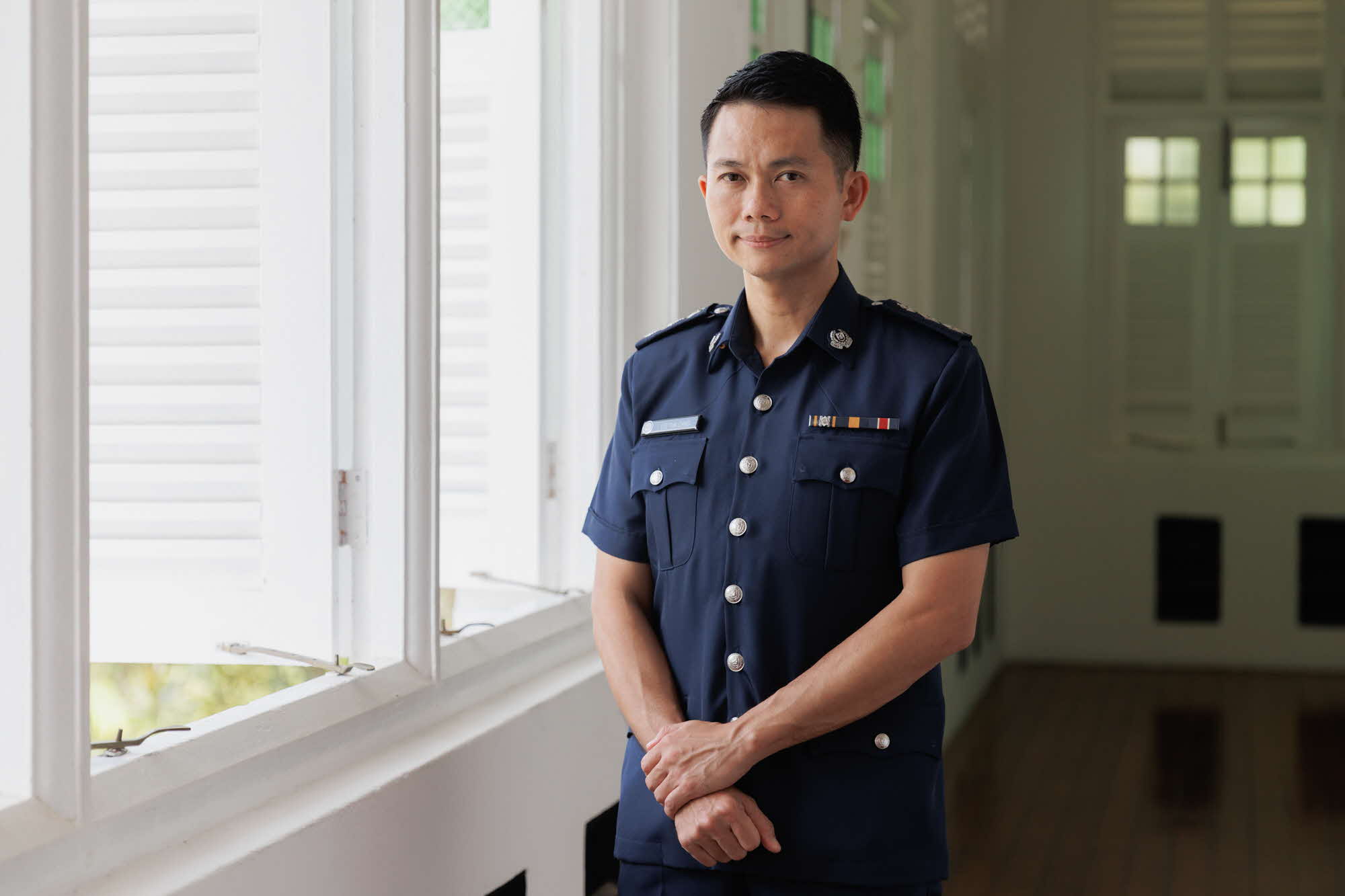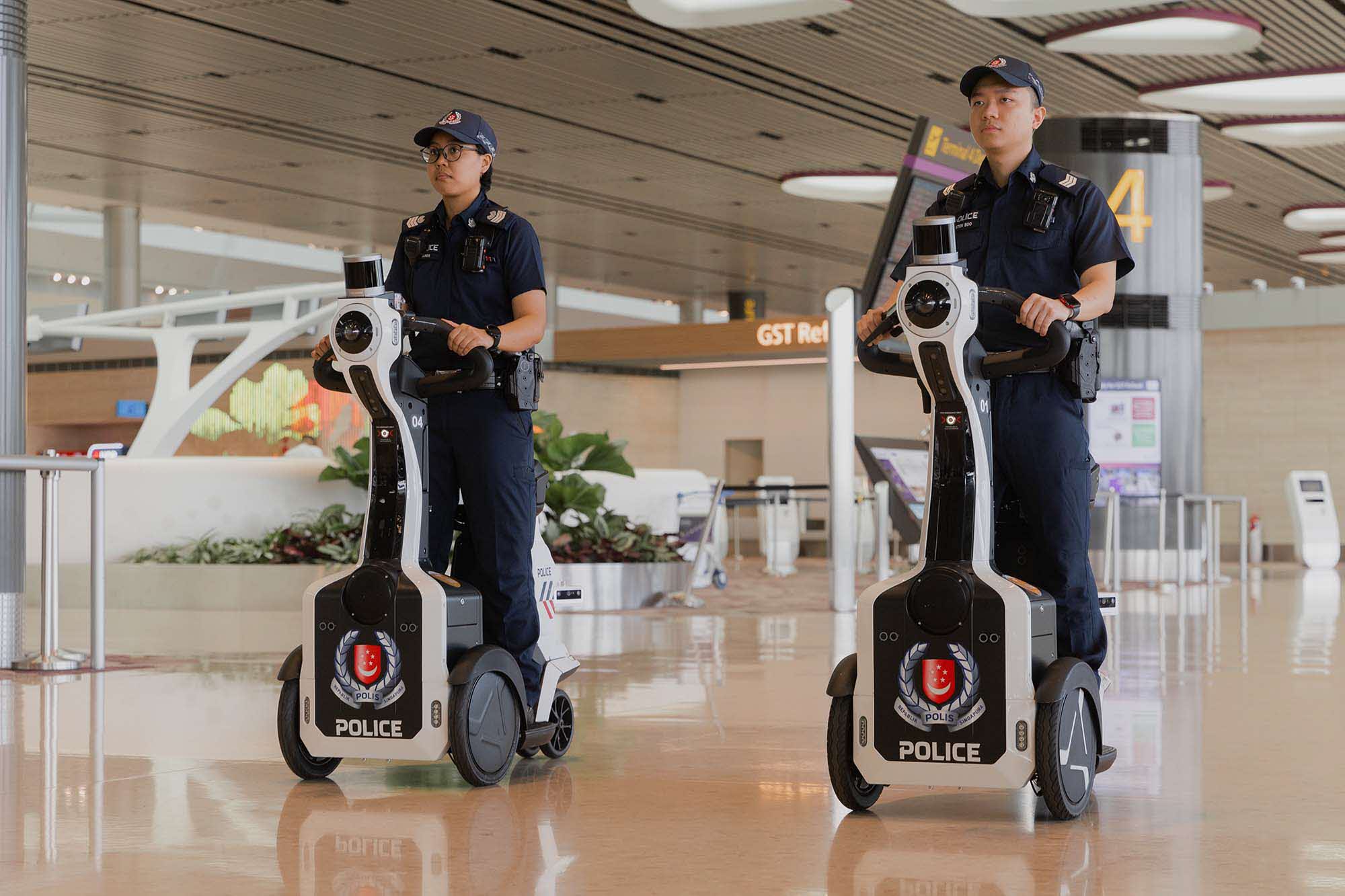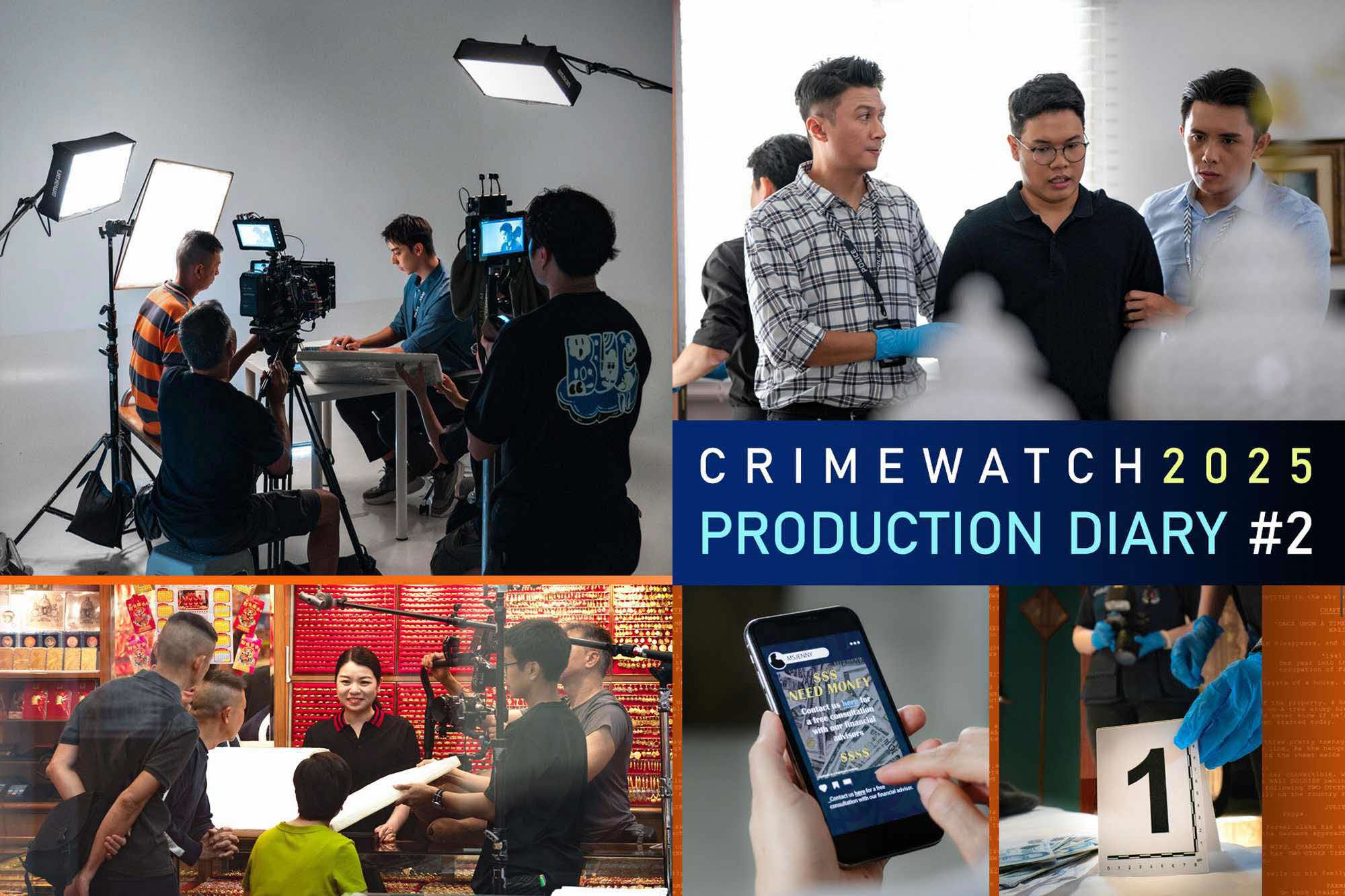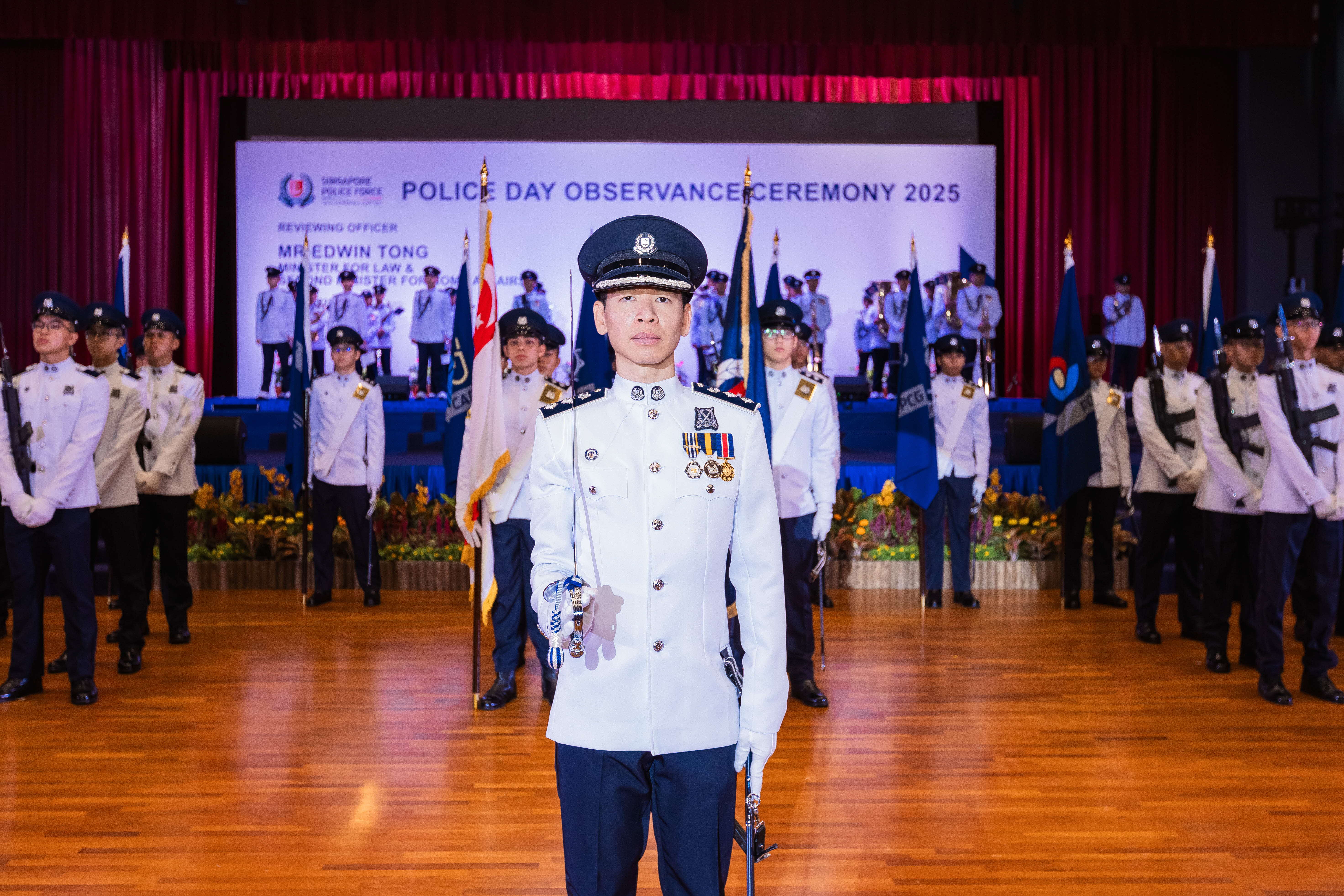A guide on how I navigated nine months as an intern at Police Life.
By: K Shreeyaa
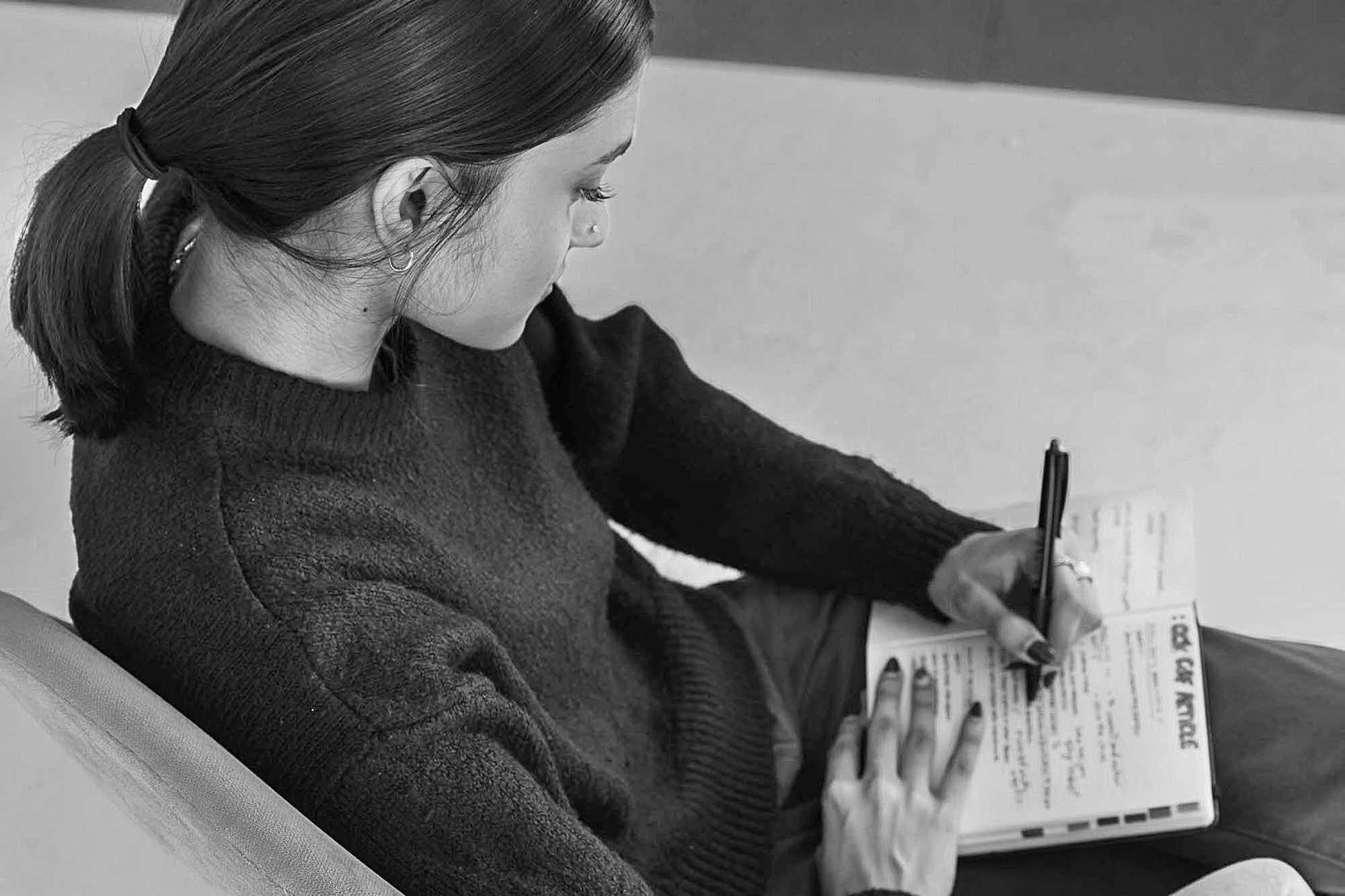
Dressed in a pink top, khaki pants and black heels, hair straightened and makeup on point – I was ready to make a good impression on my first day as an intern at Police Life.
As a Republic Polytechnic student, I’d read inspiring stories of Police officers’ bravery, compassion and professionalism; now, I had the chance to help tell these stories.
I was excited yet nervous. Everything felt new – the editorial process, the lingo, the pace. But I quickly learnt that I didn’t have to figure everything out at once. I just had to take things one day at a time.
Here are five lessons from someone who’s been there, lived it and learnt the black and white of being a journalist.
Tip #1: Always Check Your Equipment
There are few things more humbling in life than showing up to a photo shoot with a professional camera… and no batteries. That was me, confidently heading out to shoot officers from Punggol Neighbourhood Police Centre (NPC) in action, only to open my camera bag and feel my heart drop into my shoes. The batteries were on my desk, living their best life.
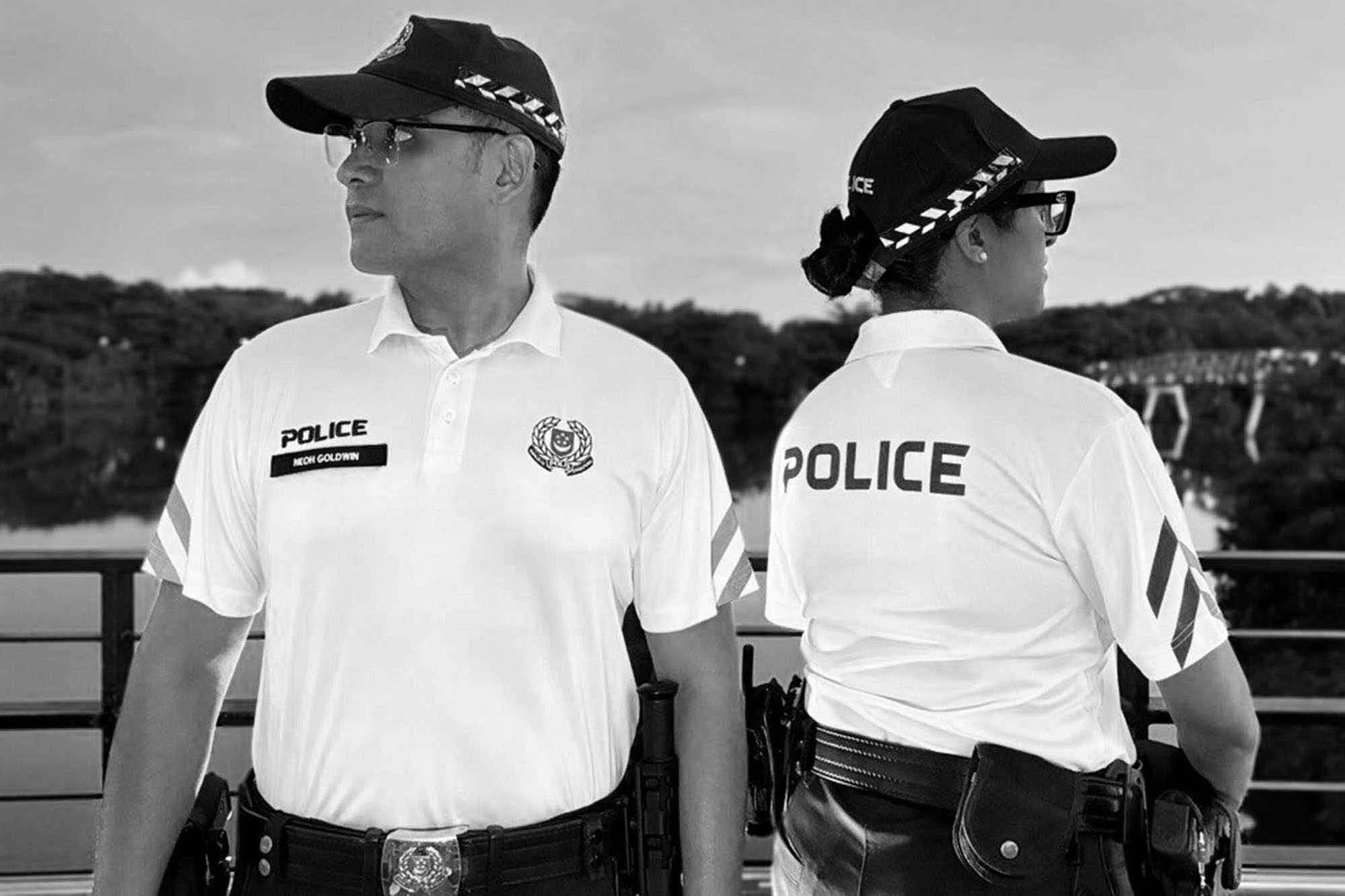
Lesson learnt: no matter how prepared you feel, always make it a habit to double-check your equipment. Batteries? Packed. SD card? Inserted. Lens? Clean.
Thankfully, I managed to adapt by using my iPhone, but that tiny slip-up taught me a big lesson. When you're in the field, you're a professional, and professionals check their equipment.
Tip #2: Jot, Plan and Don’t Get Caught Unprepared
If it’s not written down, it doesn’t exist.
When I joined the team, I thought I could remember all my deadlines in my head. Then I started losing track of my days and confusing my own schedule.
Lesson learnt: keep track of your schedule using a calendar. I live by colour-coded monthly calendars, sticky notes in every shade and a to-do list.
Don’t forget the ultimate productivity power duo: a notebook and pen. Always bring them to meetings. There’s something about writing things down that helps your brain remember, especially when someone’s firing off dates, deadlines and last-minute changes faster than you can type.
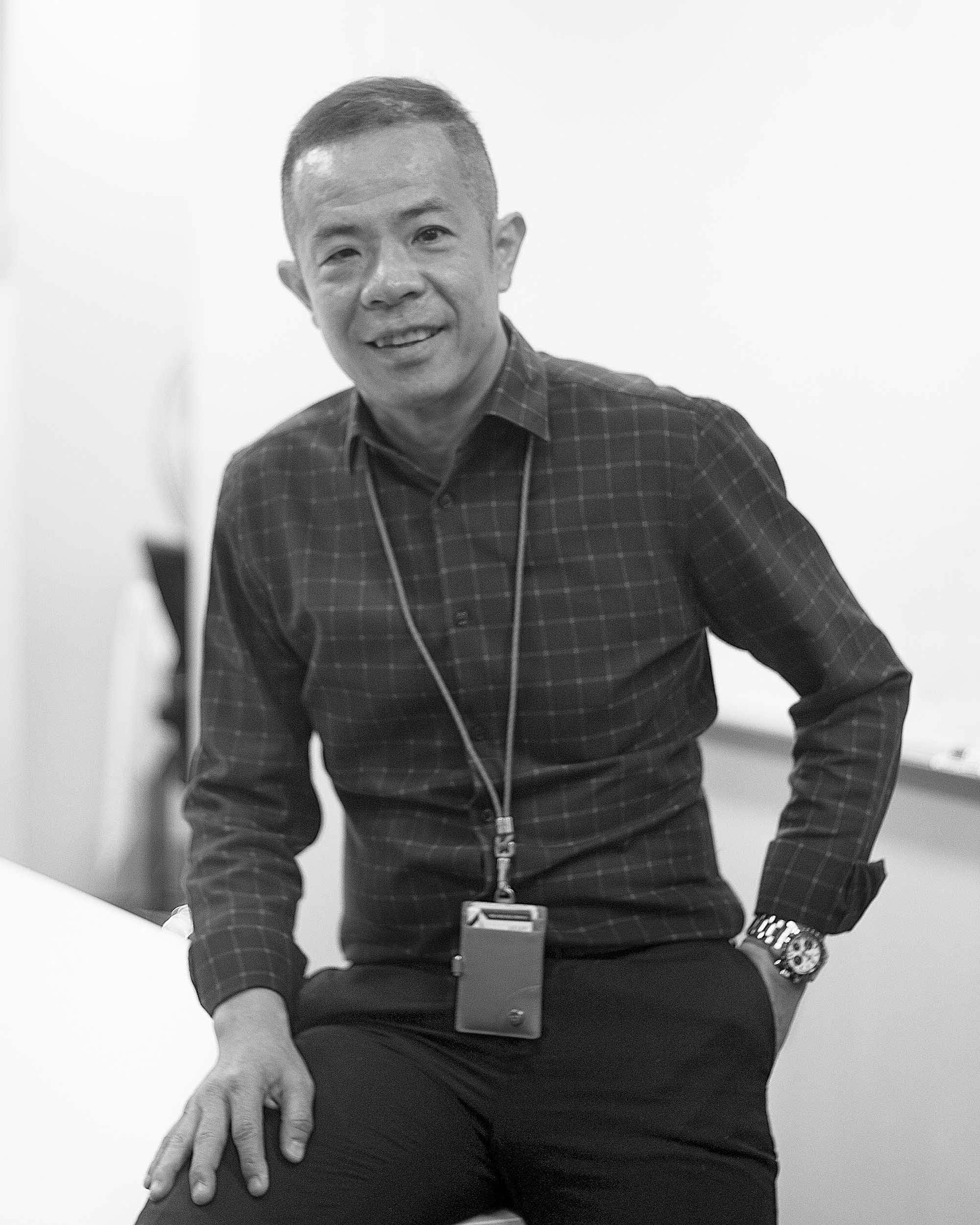
Tip 3: Have Conversations, Not Cross-examinations
My first interview with an officer was with Deputy Superintendent of Police (DSP) Chris Lee of the Criminal Investigation Department. It felt more like a courtroom drama than a casual chat. I came armed with 20 overly formal questions, a stiff smile and a shaky voice. Until then, my interviewees were mostly friends, classmates or the occasional influencer who knew the drill. This felt different, intimidating even.
I remember sitting across from him in a quiet room, clutching my notebook like a shield. My questions were all prepped, all 11 of them, printed, highlighted and arranged like I was conducting a thesis defence. I was nervous, stiff and determined not to mess up.
DSP Lee was calm, kind and made me feel like we were just two people having a chat. The moment I stopped staring at my list and started actually listening, the conversation took a natural turn. He shared personal insights, stories about his journey and advice I still carry with me today.
Lesson learnt: Officers aren’t scary. Those I’ve interviewed are warm, witty and passionate about their work. Interviews aren’t interrogations – they’re about having genuine conversations.
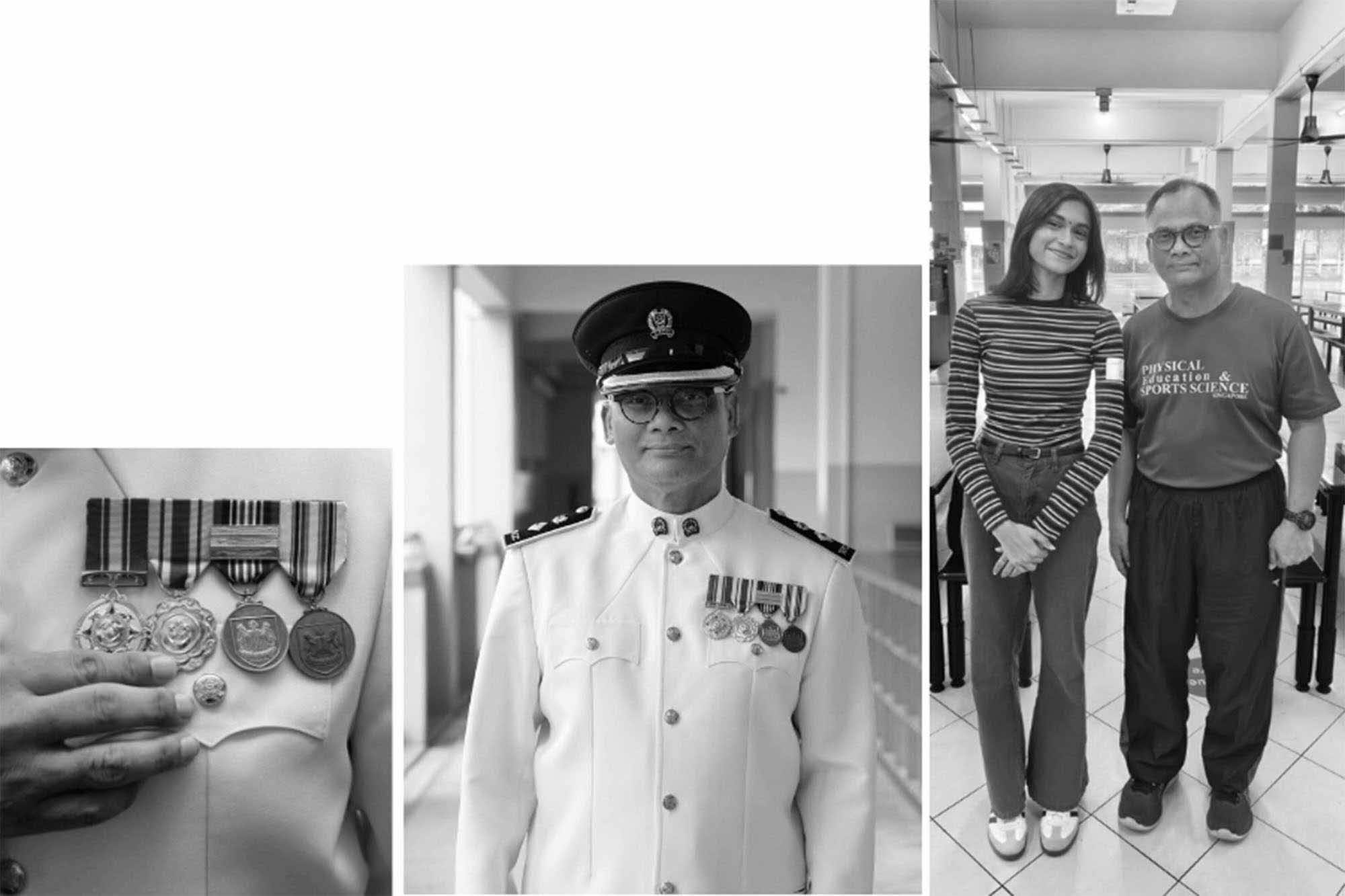
For my final assignment, I even got to meet my former primary school teacher, Honorary Deputy Superintendent of Police (H/DSP) Abdul Wahab Bin Abdul Rahman, for an article on the National Police Cadet Corps (NPCC)!
Here are three things I picked up along the way as an interviewer:
Do your homework: Know who you’re speaking to and what they’ve done. It demonstrates professionalism and respect for their work.
Adapt and go with the flow: Some of my best questions weren’t planned but asked based on instinct. When you listen more than you talk, the conversation becomes more interesting, and you naturally discover points that you’d want to know about.
Small talk helps: A comment about the weather, kopi or something funny can ease the tension and break the ice.
Tip #4: You’re Not Supposed to Know Everything
From day one, I was ready to impress. Based on what I’d learnt and my passion for the Police, I thought I’d blend right in. Spoiler: I didn’t.
The truth is, I spent the first few weeks quietly overwhelmed from learning new systems, adjusting to editorial workflows and trying to decipher acronyms that felt like a whole new language.
The hardest part? Asking questions.
I didn’t want to seem like I didn’t belong or hadn’t been paying attention. So I’d nod, scribble things down and then search them up later. Not ideal.
Lesson learnt: asking questions doesn’t make you look clueless, pretending you know does. You’re here to learn.
Seeing how openly others asked for help, and how welcoming my supervisors were, helped me open up and become more comfortable about asking questions.
Tip #5: Networking is More Than Just Name Cards
Through this internship, I learnt that networking isn’t about collecting contacts – it’s about building real connections. Whether it was chatting with officers after interviews, asking my peers about their daily lives or simply bonding with colleagues over kopi and work.
One day, after struggling with editing a photo, I realised I had a whole team of friends and colleagues ready to help me. This internship gave me more than experience – it gave me lasting friendships.
Every conversation added value. These connections not only made my internship more meaningful, but also opened doors to new perspectives and opportunities I wouldn’t have found otherwise.
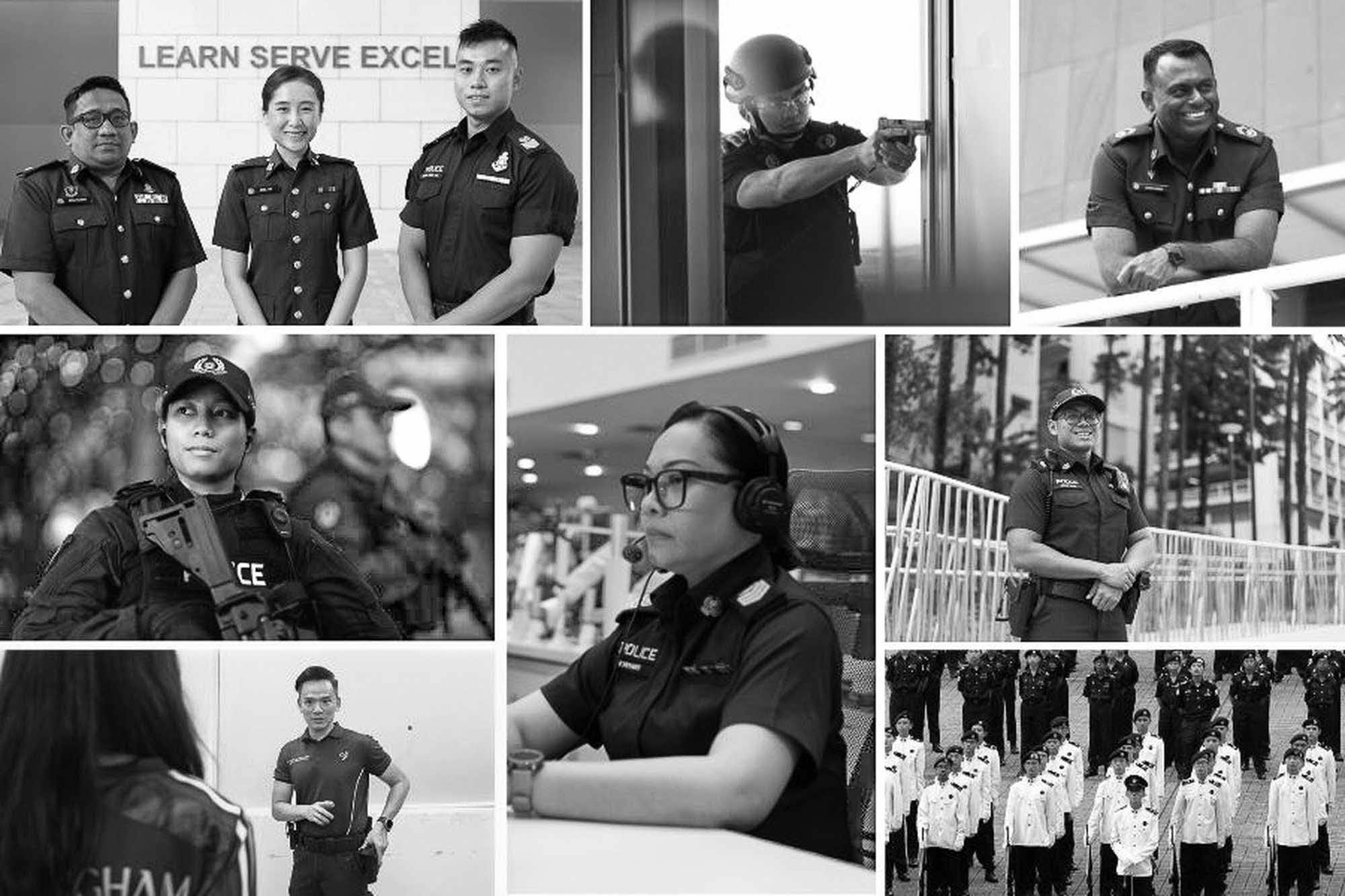
Pro Tip: Don’t be afraid to say hello, ask questions and stay curious. Some of the best insights and friendships come from unplanned moments.
I’m still learning and building my voice, my style and my perspective. These tips guided me through a fruitful journey at Police Life. The assignments, projects and stories stretched me, taught me and grounded me.
I wouldn’t trade that for anything else in the world.


